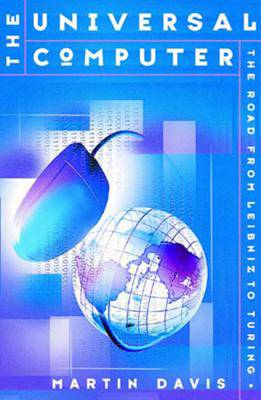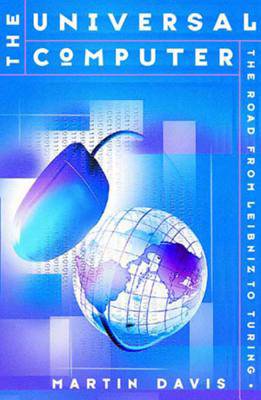
Bedankt voor het vertrouwen het afgelopen jaar! Om jou te bedanken bieden we GRATIS verzending (in België) aan op alles gedurende de hele maand januari.
- Afhalen na 1 uur in een winkel met voorraad
- In januari gratis thuislevering in België
- Ruim aanbod met 7 miljoen producten
Bedankt voor het vertrouwen het afgelopen jaar! Om jou te bedanken bieden we GRATIS verzending (in België) aan op alles gedurende de hele maand januari.
- Afhalen na 1 uur in een winkel met voorraad
- In januari gratis thuislevering in België
- Ruim aanbod met 7 miljoen producten
Zoeken
The Universal Computer
The Road from Leibnitz to Turing
Martin Davis, Martin David
Hardcover | Engels
€ 66,95
+ 133 punten
Uitvoering
Omschrijving
Computers are everywhere today--at work, in the bank, in artist's studios, sometimes even in our pockets--yet they remain to many of us objects of irreducible mystery. How can today's computers perform such a bewildering variety of tasks if computing is just glorified arithmetic? The answer, as Martin Davis lucidly illustrates, lies in the fact that computers are essentially engines of logic. Their hardware and software embody concepts developed over centuries by logicians such as Leibniz, Boole, and Godel, culminating in the amazing insights of Alan Turing. The Universal Computer traces the development of these concepts by exploring with captivating detail the lives and work of the geniuses who first formulated them. Readers will come away with a revelatory understanding of how and why computers work and how the algorithms within them came to be.
Specificaties
Betrokkenen
- Auteur(s):
- Uitgeverij:
Inhoud
- Aantal bladzijden:
- 270
- Taal:
- Engels
Eigenschappen
- Productcode (EAN):
- 9780393047851
- Verschijningsdatum:
- 17/10/2000
- Uitvoering:
- Hardcover
- Formaat:
- Genaaid
- Afmetingen:
- 161 mm x 241 mm
- Gewicht:
- 571 g

Alleen bij Standaard Boekhandel
+ 133 punten op je klantenkaart van Standaard Boekhandel
Beoordelingen
We publiceren alleen reviews die voldoen aan de voorwaarden voor reviews. Bekijk onze voorwaarden voor reviews.









